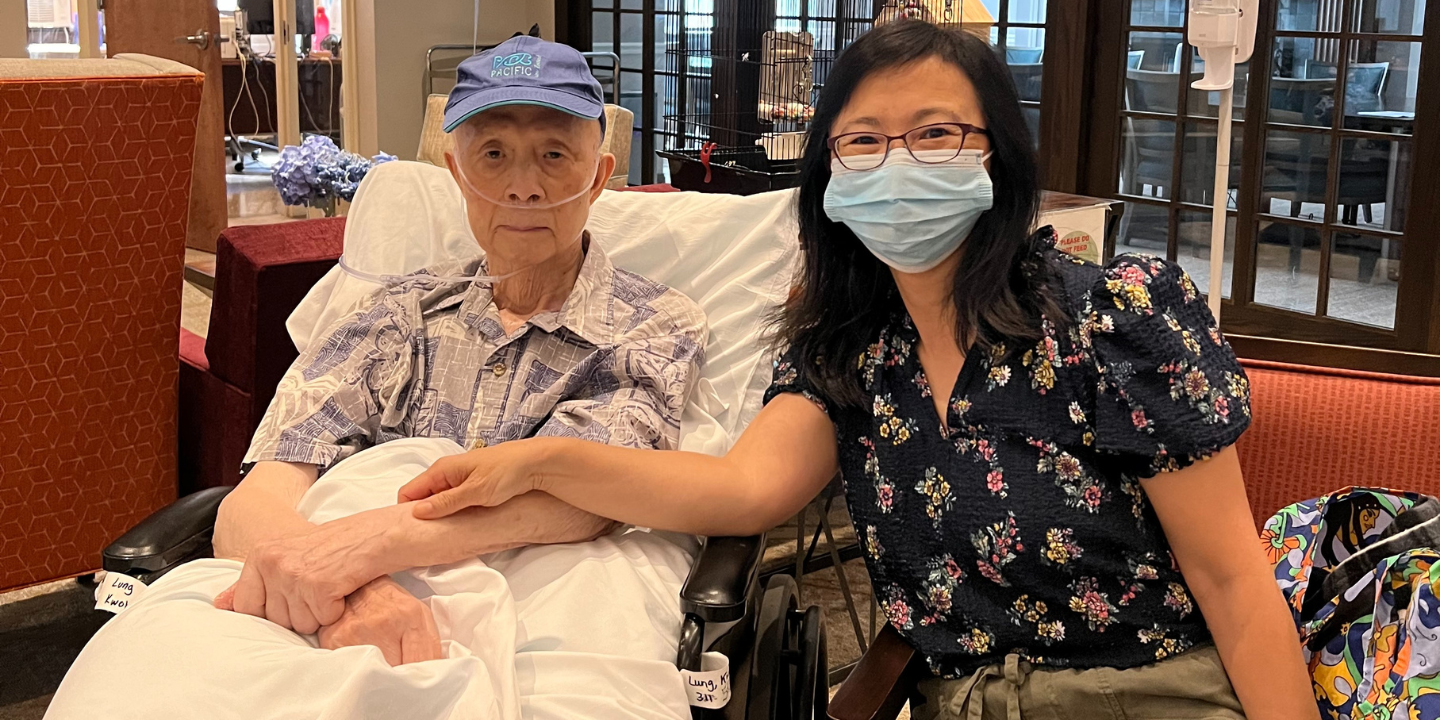When a loved one needs help recovering from illness, injury, or surgery with a short-term rehab stay, it can be a challenging time not only for the patient but also for the caregiver. Caregivers often carry the heavy burden of managing the logistics, providing emotional support, and balancing their own lives while caring for their loved one.
The stress and pressure can be overwhelming, making it crucial for caregivers to receive the support they need. Here are five important ways you can support caregivers during a loved one’s short-term rehab stay to make sure they are remembering to also take care of themselves during this season of life.
1. Offer Emotional Support
One of the most valuable forms of support you can offer a caregiver is emotional support. Caregivers often experience a wide range of emotions, from stress and anxiety to guilt and exhaustion. Sometimes, just knowing that someone is there to listen and understand can make all the difference.
Regularly check in with the caregiver through phone calls, texts, or visits. Let them express their feelings and concerns without judgment, offering empathy and understanding instead of trying to “fix” the situation. Encouraging words and simple reminders that their efforts are appreciated can go a long way in lifting their spirits.
2. Assist with Daily Tasks and Errands
Caregivers often have a full plate managing their loved one’s rehabilitation needs, handling medical appointments, and maintaining their own household responsibilities.
Offering to assist with daily tasks can significantly reduce their stress. Whether helping with grocery shopping, meal preparation, laundry, or running errands, your assistance can free up valuable time and energy for the caregiver.
Consider organizing a schedule where family members or friends rotate tasks, ensuring continuous support. Even offering to take over specific duties temporarily, such as caring for the caregiver’s own family or pets, can provide much-needed relief.
3. Encourage Self-Care and Time Off
Caregivers frequently neglect their own health and well-being, which can lead to burnout. It’s essential to remind them that taking care of themselves is crucial for their ability to care for their loved one effectively.
Encourage the caregiver to take breaks, even if it’s just for a short walk or a coffee break. Offer to stay with the patient for a few hours so the caregiver can have some time for themselves. Suggest relaxation activities such as meditation, yoga, or engaging in a hobby they enjoy. Self-care is not a luxury; it’s a necessity for caregivers to maintain their physical and emotional health.
4. Provide Information and Resources
Navigating the healthcare system and understanding the rehabilitation process can be daunting for caregivers. Offer to help research information about the rehab process, medical conditions, or financial assistance programs. Share resources such as local support groups, online forums, and counseling services tailored for caregivers.
If their loved one isn’t receiving inpatient rehabilitation, inform them about respite care options, where caregivers can take a temporary break while ensuring their loved one is in good hands. Providing this type of information can empower caregivers, helping them make informed decisions and feel more confident in their role.
5. Plan for the Future
The transition from rehab back home can be stressful for both the caregiver and the patient. Offer to assist in planning for this transition by helping with home modifications, arranging follow-up care, or preparing the home environment.
This might include organizing medical appointments, setting up home care services, or ensuring necessary medical equipment is in place. Supporting the caregiver in creating a sustainable care plan that balances their own needs with their loved one’s care can alleviate some of the pressure and help ensure a smoother transition.
How Can We Help You?
Supporting a caregiver during a loved one’s short-term rehab stay is not only an act of kindness but also an essential way to ensure the best possible outcome for the patient. By offering emotional support, assisting with daily tasks, encouraging self-care, providing information, and helping plan for the future, you can make a significant difference in the caregiver’s well-being.
We understand the challenges caregivers face, and our team is dedicated to providing comprehensive care for our patients, as well as supporting their caregivers throughout the process. If you or a loved one need short-term rehabilitation services, contact us today to learn how we can assist you and your family during this important time.

